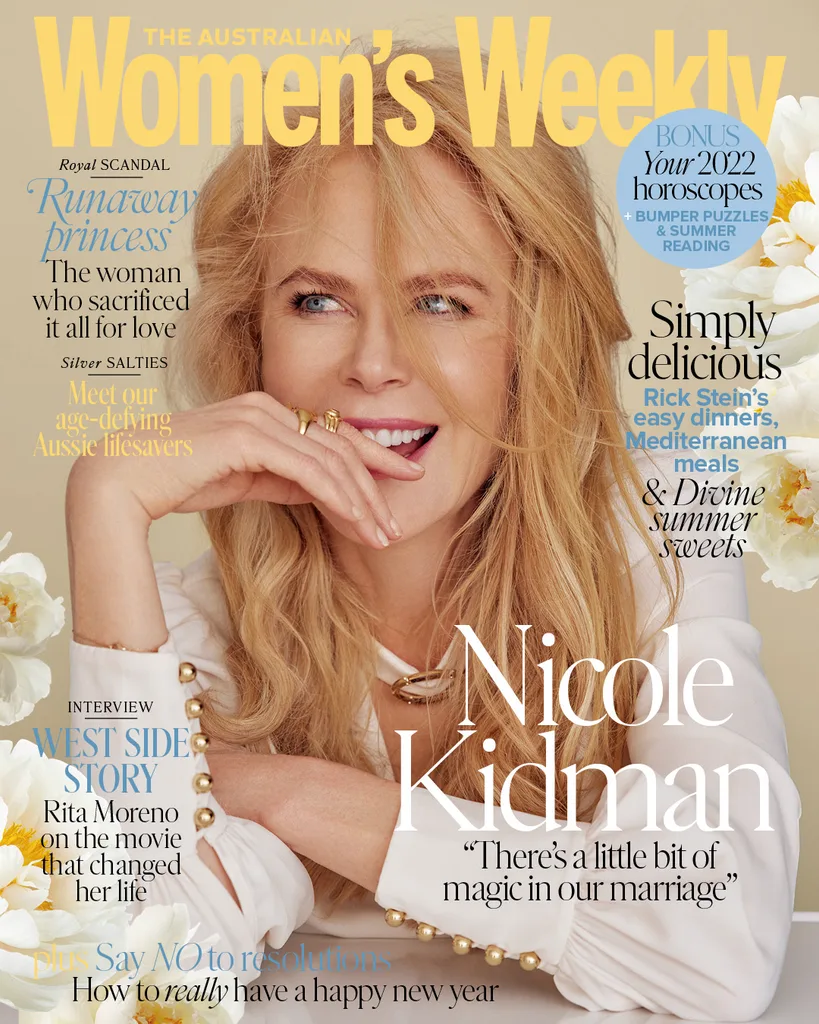When the calendar ticks over to January 1, we begin to plot and plan. With Christmas behind us, the new year stretching ahead feels like a fresh start, and so we resolve to change.
In ancient Rome, this involved making sacrifices to a two-faced god and promising to behave. Fast forward 2000 years, and our goals have become more nuanced.
Mostly, they tend to fall into one of a few different buckets: body (drop a dress size!), mood (meditate daily!), money (get a better job!), and self-improvement (be a better daughter/wife/friend/mother!).
“But often what is wrapped up in these goals is the belief that we are lacking or falling short in some way,” says entrepreneur and mentor Lorraine Murphy, author of Step Into You.

Reflecting on the year gone by can be a great way to start your 2022.
(Pexels)And no matter how determined you feel in those early days of the year, statistics show most resolutions are abandoned by mid-January. The obvious answer is to stop making them, but there is real value in taking some time to reflect and reset.
The trick, according to the experts we spoke to, is how we frame what we want and motivate ourselves to get there.
“By definition, our resolutions come with a strong belief that something will happen or be the case. It’s a bid for control, when of course we can’t control the future,” says Madeleine Dore, author of I Didn’t Do the Thing Today, noting the answer isn’t to abandon all expectations, or the hope that comes with them.
“Instead, another way is to let go of our attachment to particular outcomes and great expectations for our future self and soften resolutions into intentions.”
An intention is lighter – it’s an aim, rather than an assumption. And ironically, it’s more likely to get you where you want to go.
Look back
One of the best things you can do to move forward is to peek in the rear-view mirror first.
“Take a moment to review the year and consider what went well and what could be improved, keeping it simple,” says Lorraine, noting that our brain’s natural negative bias means we always look for the fault or the weakness.
“That way, before you even set intentions for the future, you find some closure.” Make it a ritual: Lorraine gets up early on New Year’s Eve and writes a list of all the things she wants to let go of from the previous year.
“It might be negative self-talk or being snappy with my husband or berating myself because I didn’t hit that target in my business,” she says. And then she rips the list into pieces and burns it.
“This might sound a little woo-woo, but I’ve done it for a few years now and it really does help me let go and look ahead with more clarity.”
Short story

You can scrap the long list for one single word.
(Pexels)One way to guarantee your goals don’t evaporate into thin air is to break them down into far more simple ideas.
“For a long time I was drawn to writing extensive and exhaustive New Year’s resolutions,” admits Madeleine. “It was about changing and improving myself, as if the dawn of the new year meant I could now achieve this perfect version of myself.”
Part of the problem, she explains, is to do with optimism.
“There is a thing called time optimism, where you overcrowd your diary and to-do list because you’re overly optimistic about how much you can get done. And the same thing happens with our resolutions when we crowd too many goals onto the one list,” says Madeleine.
“We actually need to create something more realistic.” So, for the past few years, she has scrapped the long list for one single word.
“These words, like ‘trust’ or ‘joy’, become a kind of anchor and reminder of how you want to approach your decision-making this year. When you stumble or feel doubt, you can return to the word to get back on track.”
Dig deep

It’s time to dig deep.
(Pexels)My husband calls it the “hospital pass”, which (for people, like me, who haven’t mastered a team sport) is a ball passed so poorly it is sure to result in injury.
When we set our goals for the new year, we rarely factor in the science of habits, which can take weeks or even months to reset.
We don’t always consider the support we might need to achieve said resolution. And we rarely think about the things that are standing in the way, within us.
It’s as if taping it to the fridge will make it so, when the truth is that recurring goals that don’t ever seem to come together might require more introspection.
“There may be patterns that are hard to face, or issues with your confidence that you need to address,” says Lorraine.
For instance, finding a new job where you feel respected might be, in part, about working on your ability to set boundaries, or reaching new goals in your business might be about unpacking self-doubt, which Lorraine says can show up as perfectionism and procrastination, too.
Start small
We put a lot of stock in setting our minds to something, “but the truth is that if you’re trying to create a new habit or change the way you behave, only a fraction of what helps us achieve that comes from intentional thought,” says Lorraine.
Instead, it is the small rituals we establish that really allow us to achieve those loftier goals. For me, feeling calm and focused is something I want to bring to the new year.
According to Lorraine, spending five to 10 minutes meditating or doing yoga each morning means I am now acting on those intentions I’ve set for myself.
“These small, daily efforts are what will really keep you feeling connected with those goals and allow you to make them a reality,” she says.
Top drive

Consider what lies beneath, say Madeleine.
(Pexels)So how do we ensure our intentions have staying power? Consider what lies beneath, say Madeleine. That is, rather than focus on what you’ll be, think about how you want to feel.
“For the longest time I wanted to exercise more, but no matter how hard I tried to cultivate the habit it would not stick,” she admits.
On reflection, that’s because she was wholly focused on the bathroom scales, “and it meant that when the number didn’t shift, it was not only demotivating but very easy to sabotage”.
The shift happened when she started to associate exercise with boosting her energy levels and providing mental clarity.
“The whole process became more about delight than dread, and I found I was able to exercise consistently.”
Rather than focus on your end point, which is an illusion anyway, “we just need to find the thing that allows for flexibility and growth, while still keeping us in the here and now”.
You can read this story and many others in the January issue of The Australian Women’s Weekly – on sale now.



